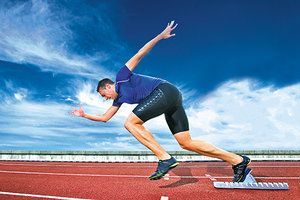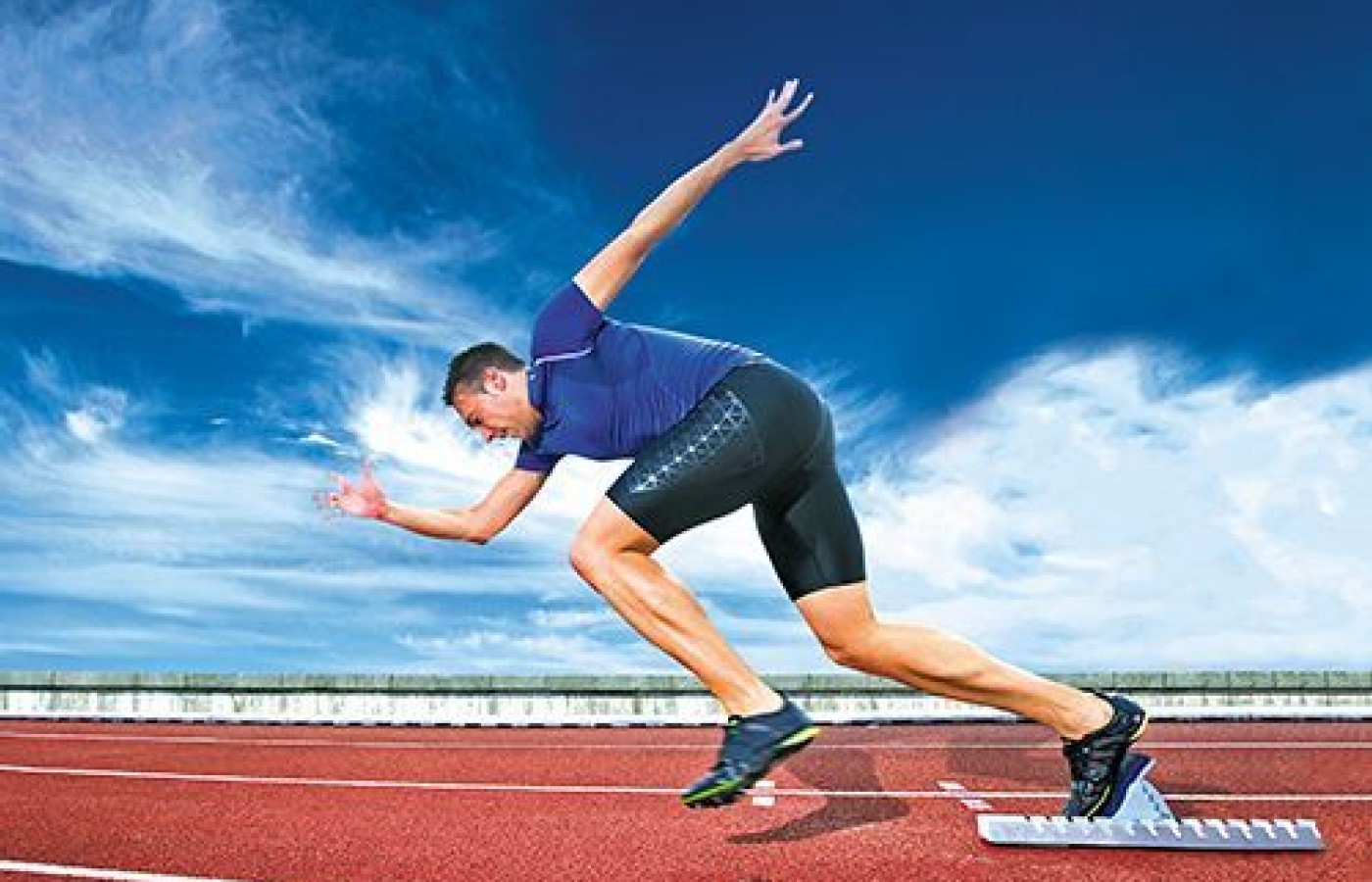The most important relationship I seek to nurture in the treatment room is the one a patient has with their own body. We live in a culture that teaches us to override pain, defer to outside authority, and push through discomfort. Patients often arrive hoping I can “fix” them, but the truth is, we can’t do the work for them. We can offer guidance, insight and support, but healing requires their full participation.
Acupuncture: The Key and Future of High Sports Performance
Acupuncture is commonly utilized in the intervention of pain and has also been gaining popularity in sports medicine. Athletes are treated with acupuncture for the relief of soft tissue injuries such as sprains, muscle strains, and tendonitis. The recovery time will vary, depending on each individual and the severity of the injury but generally, we always see an improvement in the time it takes to heal. Historically, we have read about the ancient martial arts masters and how they used to treat their students with an injury. In modern sports, we see indications of more teams and individuals incorporating acupuncture into their programs.
We are also able to take a look at acupuncture helping athletes with recovery from fatigue, delayed onset muscle soreness (DOMS) and contracture. These are all common phenomena experienced by athletes participating in both high intensity training and competition. The circulatory effects and stress relief from acupuncture can readily help athletes with recovery and a quick return to competition.
There is another key element that I have been focusing on as both a practitioner and a DAOM researcher and that is the utilization of acupuncture for the enhancement of athletic performance - going beyond what was previously the athlete's physical capabilities to reach a new and higher level of athletic performance. Careful strategy must be implemented during this transition to allow the athlete to progress appropriately to this potential higher level of proficiency. A professional assessment of their movement is an important consideration at this time and would yield many beneficial results as flaws in their movements would be revealed and then corrected before implementing acupuncture for higher intensity training and competition. Simply stated, the muscles and joints must work together.

Additionally, the athletes will also have to avoid over training. We are looking to avoid compensatory patterns (improper form) that would lend to the possibly of an injury. Athletes are great at compensating!
The athlete must have economy of movement, regardless of the sport. As an exercise physiologist as well as an L.Ac., it is crucial for me to not only treat with acupuncture, but also investigate the biomechanics of each athlete during their training, which will help them gain a competitive advantage in their sport and achieve higher levels of performance. Appropriate movement patterns are always in season. The first goal is to increase the performance ability in their sport without the higher incidence of injuries. The ultimate goal is to help create a champion.
What has to be considered at this point is the athlete's training activity, and is it appropriate for the sport in which they compete? Matching these things together is as challenging as selecting the acupuncture protocol. We also, need to take into consideration that acupuncture has a profound affect on the circulatory and neurological systems, as well as a positive downstream effect with needle grasp during the treatment. What we are considering, is whether we are aiming to help the athlete with strength, power, endurance, acceleration, etc.
Research Finds
Let's take a look at what some of the research has revealed so far. There is a case study on a baseball pitcher who's fastball would characteristically slow down after approximately 50 pitches, but with acupuncture intervention, although he was not able to increase his speed, was at least able to maintain the fastball speed. There was also a study performed on elite male cyclists who compete in 20-km races. With an acupuncture protocol implemented, they found that there was a significant increase in performance plus a lowered rating perceived exertion (RPE).
There are additional publications that reveal the favorable impact of acupuncture, which include the immediate gains in strength, increased power, and improvement in flexibility. Strength is the ability to move heavy objects, power is the ability to move objects fast, and appropriate flexibility is imperative for the range of motion (ROM) that is usually required. All of these are important components in athletic enhancement. The athlete also needs to be coached for improvement in their skill set with training.
As a part of a company whose focus is on applied biomechanics for the high performance athlete, we recently did an observational study with several of our athletes to record the immediate effects of acupuncture on acceleration, a major component needed during sprinting. After the athletes warmed up, they were timed for two separate, 20m sprints, (with a short rest between sprints), followed by the acupuncture treatment. We then repeated the same process with the warm up along with two separate, 20m sprints. In each case, the athlete improved their time. To further investigate and gain statistical analysis significance, a pilot study is warranted.
Coaches and athletes have always been searching for methods to improve performance.
Too many athletes are being suspended from their sports from using performance enhancing drugs (PEDs). As a result of more research that has favorable effects with acupuncture, we will then be able to offer teams and individual athletes acupuncture as a suitable alternative to the restricted and unhealthy PEDs. The purpose of this effort would also serve a dual role for major sports teams, as well as individual athletes to make a concerted effort on their part to recruit acupuncturists who have a background in sports medicine to be incorporated into their programs.
In the DAOM program, I focused on a protocol design that can be implemented for baseball pitchers, which would investigate the possibility of increasing the speed of a fastball pitch. Every baseball organization realizes the importance of their entire pitching staff having a good fastball pitch in their arsenal to hold back the offense of opposing teams. I look forward to implementing this protocol design in a pilot study in the near future, followed by working with major league organizations as a result of this research.



